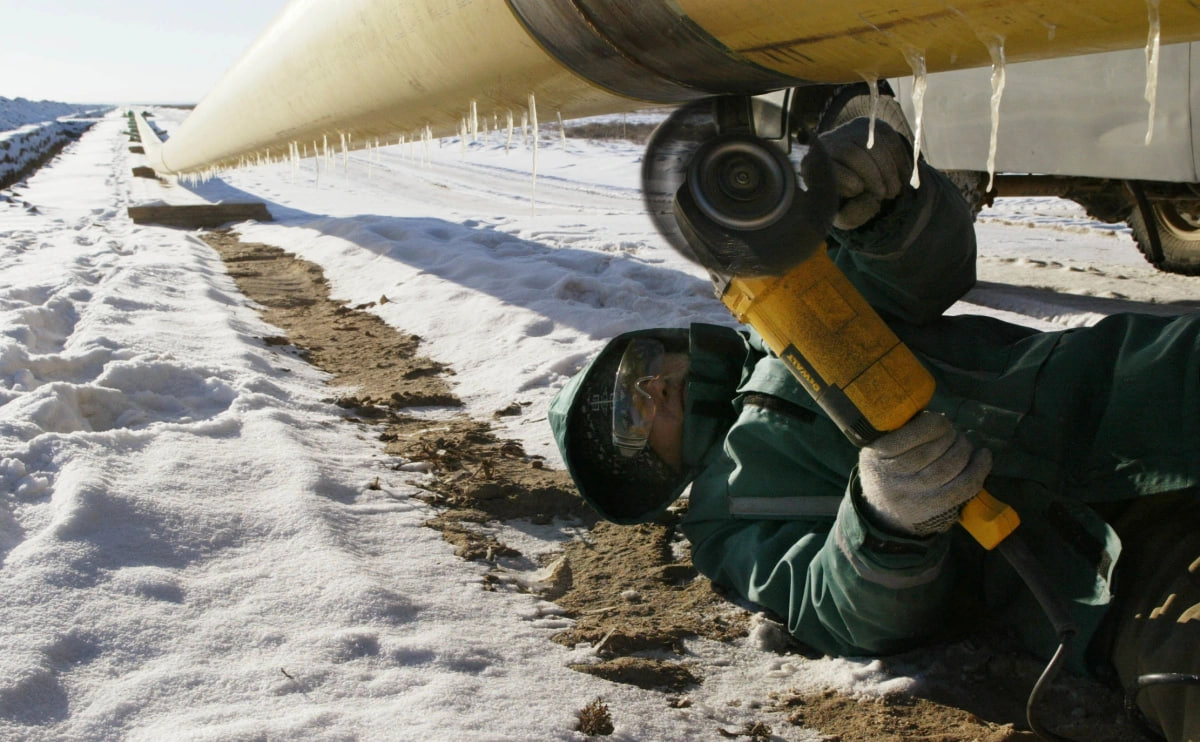How one of the smallest oil markets in Mongolia cost Trafigura over $1 billion.
How Trafigura Lost Over $1 Billion in One of the World's Smallest Oil Markets in Mongolia
In a small Mongolian branch of the world's largest commodity trading firm Trafigura Group, which remained overlooked by top management in Geneva and Singapore, a crisis was brewing that resulted in losses exceeding $1 billion for the company. According to Bloomberg, the Mongolian office was responsible for significant losses due to management errors and fraud, leading to accumulating debts and increasing credit risks.

Debts and Employee Fraud at Trafigura's Mongolian Office Led to Billions in Losses
In the Mongolian office of Trafigura, a small but profitable business for supplying petroleum products was developing, which utilized a complex payment scheme involving credit to the company Lex Oil.
Lex Oil, in turn, also provided loans to its clients. Such intricate lending schemes allowed employees to conceal growing risks until the situation reached a critical level. According to Bloomberg, employees of the Mongolian office manipulated financial statements for five years, hiding information about overdue debts, unpaid customs duties, and freight payments. This led to the accumulation of enormous debts that were not timely identified by departments in Geneva and Singapore. Only by the end of 2023 did the scale of the problem become evident, leading to corrective actions.
Billion-Dollar Losses: Uncovering Hidden Schemes and the Crisis at Trafigura in Mongolia
When the extent of the problem was revealed, it shocked both employees and external observers. Bloomberg reports that the chief oil trader of the Mongolian office, Jononbayar Erdenesuren, who had been with Trafigura since 2012, was suspended from work. The investigation is ongoing, and Trafigura hopes to partially recover losses through debts owed by Lex Oil, which exceed half of the total losses amounting to $1.1 billion.
“The most shocking aspect was the scale of the losses in relation to Mongolia's oil market, which does not rank among the top hundred countries by oil consumption, falling behind even Luxembourg and Nepal,” notes Bloomberg.
Despite Mongolia consuming around 35,000 barrels of oil per day, the losses for Trafigura reached staggering amounts disproportionate to the market size.
Financial Consequences: Assessing Losses and Restoring Mongolia's Reputation
Trafigura accounts for about a third of Mongolia's total petroleum product imports. According to Bloomberg, the Mongolian division of Trafigura had an annual turnover of hundreds of millions of dollars, with profits in the tens of millions. Although this was considered a small segment of the business, the billion-dollar losses caused shock and underscored the need for tighter control over the company's financial operations.
Trafigura's creditors commented on the incident, stating that “what happened is unlikely to affect the overall creditworthiness of the company,” but noted that such significant losses in a small market indicate a need for a reassessment of risk management.

Uncovered Fraud in Mongolia Led to Billion-Dollar Reserves
Trafigura announced the need to create reserves of $1.1 billion to cover potential losses related to fraud in its Mongolian division. An internal audit revealed violations in the business of supplying petroleum products in Mongolia, where company employees manipulated data and documents, inflated payments, and concealed overdue debts. This announcement was a significant blow to the company less than two years after a previous incident when Trafigura lost over $500 million due to nickel fraud.
“Improper actions included manipulating data and documents, leading to inflated amounts paid by Trafigura, as well as deliberately concealing overdue receivables,” stated the company.
Following the internal audit, an external investigation was conducted, confirming that the fraud had developed over five years.
The Mongolian Oil Market: High Barriers for Foreign Companies
The Mongolian oil market is characterized by strict regulations: international companies cannot directly supply oil without an import license and must work through local intermediaries. Trafigura's main partner in this market was Lex Oil, which supplied fuel on credit with the obligation to pay after covering duties. This multi-stage payment scheme complicated the identification of debts in reports, allowing the problem to develop.
Mongolia's Small Market with Large Financial Risks
Mongolia, according to the U.S. Energy Information Administration, is a minor oil consumer, with annual demand accounting for less than 0.03% of the global total. Nevertheless, fraud in Trafigura's Mongolian office, equivalent to the annual value of petroleum product consumption in the country, led to shocking financial consequences.
To cover its losses, Trafigura may need to reassess its financial statements for recent years to reflect actual performance. Despite record profits amid spikes in energy resource prices, such incidents exert pressure on the profitability of global trading companies.
The Counterparty on the Mongolian Contract is Obligated to Repay the Debt
Trafigura confirmed that most of the debt in Mongolia is owed by its primary counterparty, who has not been named in the statement.
“We intend to hold the counterparty accountable for fulfilling its repayment obligation,” said company representatives.
Trafigura's Executive Chairman and CEO Jeremy Weir noted:
“We are confident that this issue pertains only to a specific operation in Mongolia. Nevertheless, we are taking further steps to improve oversight and control across the group.”
The company's metallurgical business in Mongolia, managed from abroad, continues to operate as usual.
Systemic Fraud Issues at Trafigura
Recent events in Mongolia are part of a series of scandals that have affected Trafigura in recent years. In the first half of 2023, the company filed a lawsuit for $577 million after discovering “systemic fraud” involving nickel, during which it became clear that some shipments did not contain the metal. In March, Trafigura also agreed to pay $127 million to settle a U.S. Department of Justice investigation regarding operations in Brazil, and in May, an additional $55 million as part of a civil penalty from the U.S. Commodity Futures Trading Commission.